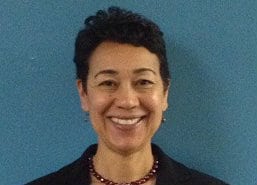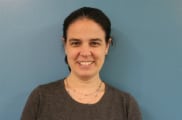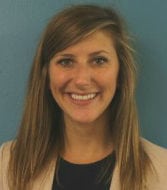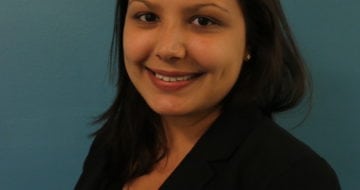In order for students to become college and career ready and learn deeply, they need teachers who are prepared to support learning and instruction in different ways. We saw this on a recent American Youth Policy Forum visit to Denver Center of International Studies (DCIS), a school in Denver, Colorado that focuses on teacher preparation and development as the keys to student success.
We chose to visit DCIS because of their performance with a diverse student body, their unique mission and focus, and their emphasis on building strong teacher capacity. Guiding their work is their mission statement: “The Denver Center of International Studies prepares students for college by developing multilingual, interculturally competent citizens who are actively involved in our rapidly changing world.” Teachers help prepare students for this changing world by focusing on six deeper learning outcomes: mastery of core content knowledge, critical thinking and problem solving, collaboration, communication, self direction, and academic mindset.
DCIS’ commitment to teacher support is evident in their willingness to provide opportunities for student teachers to learn their craft under the mentorship of DCIS master teachers. DCIS partners closely with CU Denver School of Education & Human Development to invest in aspiring teachers’ education while they are still earning an undergraduate teaching degree. At present there are five student teacher residents at the school. As we visited one student teacher’s classroom, we watched her conduct a math lesson that incorporated students actively manipulating materials, collaborating in groups, and sharing their insights and questions with one another. The student teacher was assisted by her mentor teacher, with whom she had been working for many months. Following the lesson the resident could expect to receive critical feedback from her mentor on what worked and what didn’t work with the lesson. In a presentation to our group Linda Darling-Hammond, Charles E. Ducommun Professor of Education at Stanford University, also emphasized how important these kinds of hands-on learning experiences are for student teachers. “You learn to teach by teaching,” she noted. These opportunities to teach at DCIS provide the student teachers with a way to link the content they are learning about with practice, and in turn they can help their students learn in the same way.
DCIS also pays careful attention to their recruitment of new teachers. They do not have a large amount of staff turnover, but when they do hire, teachers complete the district’s application as well as one developed by the school to ensure that prospective hires understand the culture of the school they are entering.
Once hired, teachers receive ongoing professional development support. They have time to meet and to work collaboratively to plan curriculum and assessments, as well as to team-teach. Time is a critical factor, as teachers need to learn how to facilitate learning (rather than follow the more traditional model of delivering content from the front of the room) and to practice these skills and reflect on their own learning and development. As one teacher commented, “I have to really be prepared to have lots to offer students. I have to think more deeply about my subjects.” Another teacher emphasized the importance of working with colleagues to “find a variety of materials that are engaging,” and “different ways to get students to do the thinking.”
DCIS teachers have a greater say in who assists their learning through distributed leadership. They are active participants in determining what professional development they require and who provides it. Currently two teachers are working as coaches, providing a group of teachers with professional development on how to improve their teaching. Teachers share their lesson plans with these coaches and receive feedback and support. As one teacher observed, “I can talk to my colleagues and get help.”
Despite their successes to date, there is still work to be done. Teachers admitted that they could do better to onboard new teachers. They continue to work on taking ownership of their own learning, figuring out how best to work with students to co-construct the learning in the classroom. And their focus remains on how best to serve students. In response to a query as to what drives him to improve, one teacher noted that students don’t want worksheets or busy work. “They buy into the mission on the walls,” he asserted. Teachers at DCIS take very seriously their role in preparing students for a rapidly changing world through constant attention to their own preparation and ongoing learning.
Loretta Goodwin is a Senior Director at the American Youth Policy Forum







